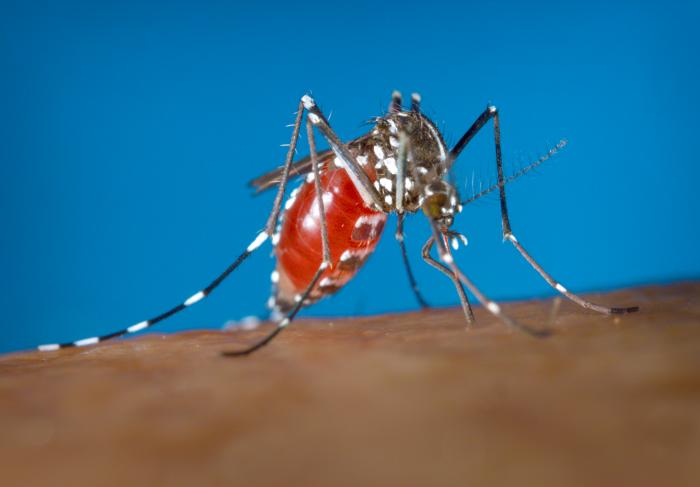In a follow-up on the dengue epidemic on the Indian Ocean island of Reunion, French health officials report an additional 298 biologically confirmed and probable cases in the past week, bringing the total to 2,119 cases for the year.

Image/CDC
Fifty-nine people have required hospitalization for their illness to date. This compares with 12 hospitalizations for all of 2017.
The following actions have been implemented in Réunion by public authorities:
- Reinforced vector control measures, focusing primarily in areas around reported dengue cases;
- Enhanced surveillance of cases;
- Blood and safety of substances of human origin (SoHo) safety measures implemented;
- Social mobilization activities; and
- Specific risk communication messages aiming to raise dengue fever awareness among the public and health care workers, including posters at points of entry (PoE) and announcements onboard flights to and from Réunion.
Aedes albopictus and Aedes aegypti mosquitos are both found in Réunion; however, Ae. albopictus has historically had the highest observed abundance.
On 27 March 2018, public authorities raised the level of the emergency plan “Organisation de la Réponse de Sécurité Civile” (ORSEC) to 3, corresponding to a low-level epidemic. This plan includes:
- Active case finding;
- Intensified vector control;
- Reinforced communication to the public and health care workers;
- Mobilization of additional resources, including human resources (e.g., firefighters).


